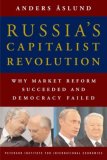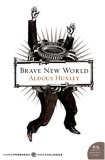Advertisement
Anti‑Scientific Americans: The Prevalence, Origins, and Political Consequences of Anti-Intellectualism in the US
Matthew Motta
 Anti‑intellectualism has long been a powerful force in Amerian political life. It has also regularly been the subject of both scholarly and public interest. In Anti-Scientific Americans, Matthew Motta revives Richard Hofstadter’s pioneering insights from the 1960s on the subject and offers new theoretical and data-driven insights.
Anti‑intellectualism has long been a powerful force in Amerian political life. It has also regularly been the subject of both scholarly and public interest. In Anti-Scientific Americans, Matthew Motta revives Richard Hofstadter’s pioneering insights from the 1960s on the subject and offers new theoretical and data-driven insights.
Anti‑Intellectualism in American Life
Richard Hofstadter
 Winner of the 1964 Pulitzer Prize in Nonfiction Anti-Intellectualism in American Life is a book which throws light on many features of the American character. Its concern is not merely to portray the scorners of intellect in Amerian life, but to say something about what the intellectual is, and can be, as a force in a democratic society.
Winner of the 1964 Pulitzer Prize in Nonfiction Anti-Intellectualism in American Life is a book which throws light on many features of the American character. Its concern is not merely to portray the scorners of intellect in Amerian life, but to say something about what the intellectual is, and can be, as a force in a democratic society.
How to Think Politically: Sages, Scholars and Statesmen Whose Ideas Have Shaped the World
James Bernard Murphy and Graeme Garrard
China’s Crony Capitalism: The Dynamics of Regime Decay
Minxin Pei
The Righteous Mind: Why good people are divided by politics and religion
Jonathan Haidt
Russia’s Capitalist Revolution: Why Market Reform Succeeded and Democracy Failed
Anders Aslund
Brave New World
Aldous Huxley
The Communist Manifesto
Karl Marx and Friedrich Engels
The Wealth of Nations
Adam Smith
Adam Smith in Beijing: Lineages of the Twenty-First Century
Giovanni Arrighi
The Mass Psychology of Fascism
Wilhelm Reich
The Psychology of Politics
Hans J. Eysenck
Dimensions of Personality
Hans J. Eysenck
Stars Come Down to Earth and Other Essays on the Irrational in Culture
Theodor Adorno
hello












